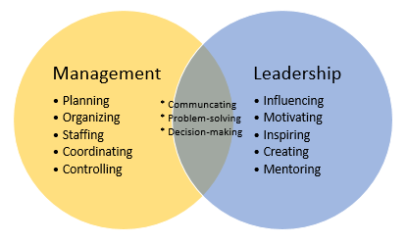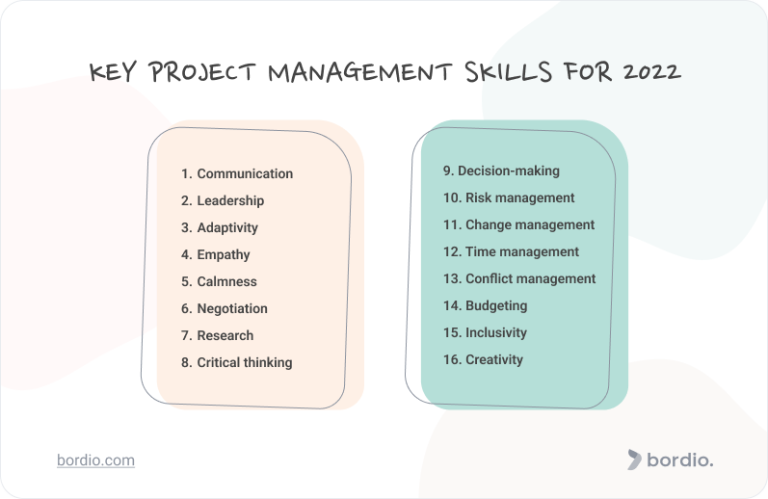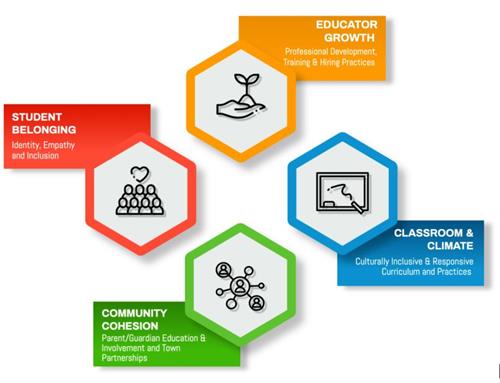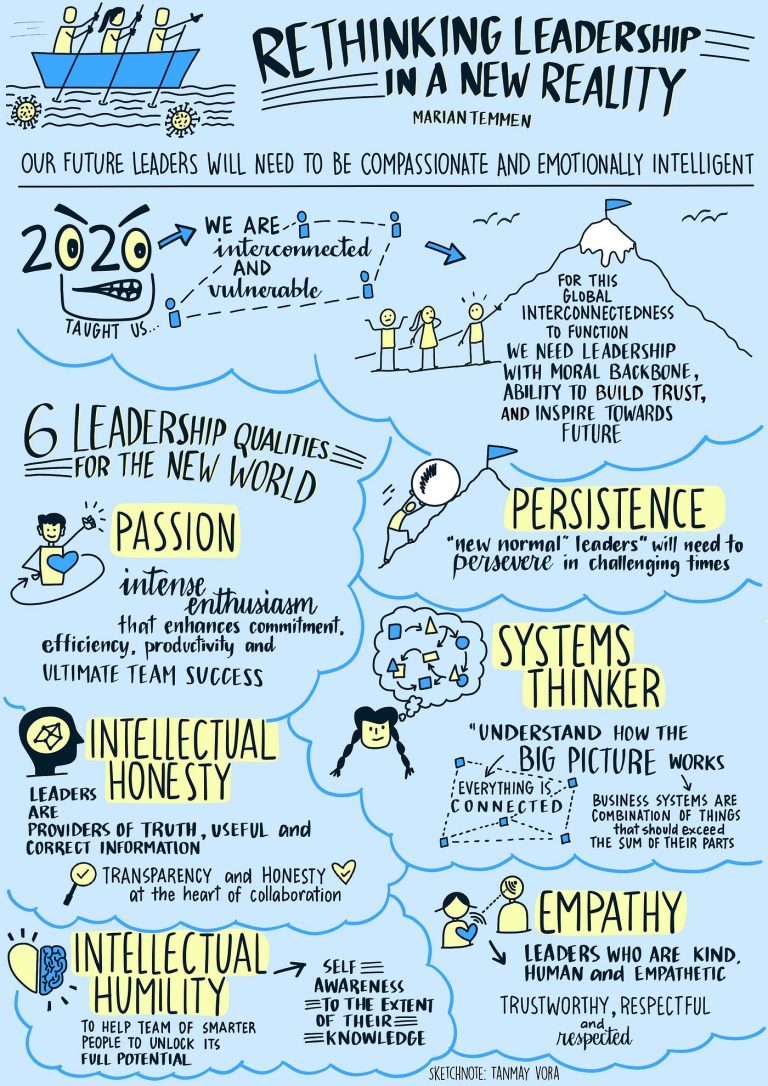Why is Leadership Important in Management?
Leadership is crucial in management as it guides and motivates employees, ensuring the achievement of goals and success for the organization. Effective leadership inspires trust, boosts employee morale, and fosters teamwork, leading to increased productivity and innovation.
It sets a clear direction, resolves conflicts, and empowers employees to reach their full potential, driving the growth and profitability of the business. In today’s dynamic business landscape, effective leadership is more essential than ever. Organizations need leaders who can navigate uncertainty and adapt to changing market conditions.
A strong leader sets a vision and communicates it to the team, providing guidance and support along the way. They foster a positive work environment, where employees feel empowered and motivated to contribute their best efforts. Moreover, leadership plays a critical role in building and maintaining a strong corporate culture. Leaders who embody the organization’s values and ethics inspire others to do the same, creating a cohesive and high-performing team. Additionally, strong leadership encourages accountability, as leaders hold themselves and their team members responsible for their actions and outcomes. Overall, leadership is the cornerstone of effective management, driving success, growth, and innovation within an organization.
Increased Employee Productivity
Leadership is crucial in management as it directly impacts employee productivity. Effective leaders inspire and motivate their teams, fostering a culture of high performance and accountability, resulting in increased productivity and overall success for the organization.
Inspiring And Motivating Employees
When leaders prioritize inspiring and motivating employees, it directly contributes to increased productivity. By creating a positive work environment and fostering a sense of purpose, leaders can tap into the potential of their team members. Employees who feel motivated are more likely to go above and beyond, pushing themselves to achieve their best. This not only benefits the individual, but it also has a ripple effect on the entire organization.
Inspiring and motivating employees can be achieved through various strategies:
- Recognizing and acknowledging employees’ achievements publicly.
- Providing regular feedback and constructive criticism to help employees grow.
- Encouraging creativity and innovation by allowing employees to take risks.
- Offering opportunities for professional development and career advancement.
When leaders prioritize these strategies, employees feel valued and empowered, leading to increased productivity and overall success.
Setting Clear Goals And Expectations
Another essential aspect of leadership that contributes to increased employee productivity is setting clear goals and expectations. When employees know what is expected of them and have a clear understanding of the organization’s goals, they can align their efforts accordingly. Clarity in expectations eliminates confusion and ensures that everyone is on the same page.
Leaders can effectively set clear goals and expectations by:
- Communicating objectives clearly and regularly to the team.
- Breaking down larger goals into actionable tasks.
- Establishing realistic deadlines and milestones.
- Providing necessary resources and support to achieve goals.
| Benefit | Explanation |
|---|---|
| Increased accountability | When goals and expectations are clearly defined, employees are more likely to take ownership of their tasks and be accountable for their performance. |
| Reduced ambiguity | Clear goals and expectations minimize uncertainty, allowing employees to focus their efforts and avoid wasting time on unproductive tasks. |
| Improved efficiency | With a clear roadmap in place, employees can work more efficiently, prioritizing tasks and making better decisions to achieve desired outcomes. |
When leaders set clear goals and expectations, employees can work towards a common purpose, leading to increased productivity and a more cohesive team.

Credit: www.pinterest.com
Better Decision-making
Leadership is crucial in management because it enhances decision-making skills, leading to better outcomes. Effective leaders can analyze situations, gather information, and make informed choices that benefit their teams and organizations. Strong leadership fosters a culture of trust and collaboration, empowering individuals to contribute their unique perspectives and expertise.
Effective Problem-solving
Better decision-making is a crucial aspect of effective leadership in management. When leaders possess strong decision-making skills, they can navigate complex problems and make sound choices that benefit their team and the organization as a whole.
The ability to effectively problem-solve is one of the key traits that sets a leader apart. By approaching problems with a clear and analytical mindset, leaders can identify the root causes of issues and develop innovative solutions.
Leaders who excel at problem-solving are adept at gathering and analyzing relevant information, exploring different options, and considering the potential outcomes of each choice. They are also able to make decisions in a timely manner, avoiding delays that can hinder progress.
Some ways effective leaders demonstrate their problem-solving skills include:
- Identifying and defining problems accurately to ensure a comprehensive understanding
- Gathering relevant data and information from reliable sources
- Analyzing various perspectives to consider all possible solutions
- Considering both short-term and long-term consequences of their decisions
- Communicating their thought process and rationale to their team
Analyzing Various Perspectives
Effective leaders understand the importance of analyzing various perspectives when it comes to decision-making in management. By considering different viewpoints and insights, leaders can gain a more comprehensive understanding of the situation at hand and make informed choices that take into account the needs and concerns of all stakeholders.
When leaders analyze various perspectives, they encourage diversity of thought within their team. This diversity fosters creativity and innovation, as different viewpoints bring forth unique ideas and solutions. By actively seeking out and valuing different perspectives, leaders can harness the collective wisdom of their team and make decisions that are well-rounded and impactful.
Some strategies leaders can employ to analyze various perspectives include:
- Encouraging open and honest communication within the team
- Seeking input from individuals with diverse backgrounds and experiences
- Listening actively and empathetically to understand different viewpoints
- Engaging in collaborative problem-solving sessions
- Considering potential biases and challenging assumptions
In conclusion, better decision-making is an essential component of effective leadership in management. Leaders who possess strong problem-solving skills and are open to analyzing various perspectives can make informed choices that drive the success of their team and organization.
Enhanced Team Collaboration
Leadership plays a vital role in management as it enhances team collaboration, fostering a cohesive and productive work environment. Strong leadership not only guides and motivates the team but also ensures effective communication, delegation of tasks, and the attainment of organizational goals.
Enhanced Team Collaboration Leading a team requires more than just making decisions and giving orders. Effective leadership is essential for enhancing team collaboration and fostering a sense of unity and synergy among team members. Promoting Open Communication One of the key aspects of leadership in management is promoting open communication within the team. When leaders encourage an environment where team members feel comfortable sharing their thoughts, ideas, and concerns, it fosters collaboration and creativity. By openly communicating, team members can effectively work together, share knowledge, and brainstorm innovative solutions. In addition, open communication allows for better understanding and transparency, reducing conflicts and misunderstandings that may arise due to miscommunication. By promoting open communication, an effective leader ensures that everyone has a voice and that their opinions are valued, ultimately leading to more efficient teamwork. Building Trust and Respect Trust and respect are the foundation of a successful team collaboration. An effective leader understands the importance of building trust and respect among team members. When team members trust and respect their leader, they are more likely to trust and respect their fellow team members as well. This promotes a collaborative atmosphere where everyone feels comfortable expressing their thoughts and ideas. To build trust and respect, leaders must demonstrate integrity, honesty, and consistency in their actions and words. They must also create a supportive and inclusive environment where every team member feels valued and empowered. When team members trust and respect each other, they are more motivated to work together towards shared goals and find innovative solutions to challenges. By emphasizing the importance of open communication, trust, and respect, an effective leader lays the groundwork for enhanced team collaboration. When team members collaborate effectively, they leverage their collective skills and knowledge to achieve optimal results. This not only boosts productivity but also fosters a positive work culture where team members feel engaged, motivated, and invested in their collective success. Overall, leadership plays a crucial role in facilitating enhanced team collaboration within an organization. Through promoting open communication and building trust and respect, leaders empower their team members to work together, share ideas, and achieve shared objectives. By investing in effective leadership, organizations can unlock the true potential of their teams and foster a collaborative environment that drives success.Effective Change Management
Effective change management requires strong leadership in management. Leaders play a crucial role in guiding teams through transitions, setting direction, and inspiring others to embrace change. Their ability to provide clear communication and support helps drive successful change initiatives.
Change is inevitable in today’s fast-paced business environment. Effective change management is crucial for leaders in management to navigate through transitions smoothly. It involves leading and inspiring teams through periods of uncertainty, adapting to market changes, and staying ahead of the competition. To ensure a successful transition, leaders must possess the skills necessary to lead through change, identify opportunities in evolving markets, and implement strategies to capitalize on them. Let’s delve into two key aspects of effective change management: Leading Through Transition and Adapting to Market Changes.Leading Through Transition
During periods of transition, leaders play a pivotal role in guiding their teams towards the desired outcome. They need to communicate clearly, align goals, and motivate employees to embrace change. By fostering a positive and inclusive culture, leaders can create an environment where employees feel supported and empowered to adapt. They must also be catalysts for innovation, encouraging their teams to think outside the box and find creative solutions to challenges that arise during the transition. Navigating through change requires leaders to be transparent and communicate regularly with their teams. By providing updates, addressing concerns, and seeking feedback, leaders can foster trust and ensure everyone is on the same page. This open communication also allows leaders to identify potential roadblocks early on, enabling them to proactively manage risks and make necessary adjustments.Adapting To Market Changes
In the dynamic business landscape, market changes can occur rapidly. Leaders must be proactive and adaptable to stay competitive. Through continuous market analysis, leaders can identify emerging trends, consumer preferences, and industry shifts. Armed with this information, they can develop strategies to capitalize on new opportunities and mitigate potential threats. By encouraging a culture of learning and development, leaders create a workforce that is equipped to adapt to market changes. They foster a growth mindset, encouraging employees to embrace continuous learning, upskill, and stay well-informed about industry advancements. This culture of adaptability empowers teams to respond quickly to market shifts, enabling the organization to maintain a competitive edge. To effectively adapt to market changes, leaders must also be willing to challenge the status quo. They should encourage innovative thinking and foster an environment where experimentation is encouraged. By challenging existing processes and encouraging fresh perspectives, leaders can drive innovation and position their organization for success in a rapidly evolving market. In conclusion, effective change management is essential for leaders in management. By leading through transition and adapting to market changes, leaders can guide their teams through uncertainty and position their organization for continuous growth. The ability to navigate change effectively and adapt to evolving markets is a hallmark of effective leadership in management.Organizational Growth And Success
In today’s competitive business environment, the role of leadership in management cannot be overstated. Effective leadership is essential for organizational growth and success. A strong and capable leader can drive the company towards achieving its goals, while also ensuring employee satisfaction and development.
Creating Vision And Strategy
Leadership plays a vital role in creating a clear vision and defining a strategic path for the organization to follow. By developing a compelling vision, leaders inspire and motivate employees, aligning their efforts towards a common goal. They provide a roadmap for success, outlining the steps needed to achieve the organization’s objectives.
Effective leaders communicate the vision and strategy to all team members, ensuring everyone understands their role in achieving the organizational goals. They inspire confidence and enthusiasm, instilling a sense of purpose and direction within the workforce.
Developing Future Leaders
Investment in leadership development is crucial for the long-term success and sustainability of any organization. Leaders not only guide and manage the present, but they also play a key role in identifying and nurturing future leaders within the company.
By mentoring and providing opportunities for growth, leaders develop a pipeline of talent, ensuring continuity and stability. They identify employees with high potential and provide them with the necessary guidance, training, and resources to cultivate their leadership skills.
Developing future leaders not only strengthens the organization’s leadership bench strength but also fosters a culture of continuous learning and growth. This enables the company to adapt to changing market conditions and stay ahead of the competition.

Credit: www.sienaheights.edu

Credit: slideplayer.com
Frequently Asked Questions On Why Is Leadership Important In Management?
Faq 1: What Is Leadership In Management?
Leadership in management refers to the ability of a manager to guide and inspire a team towards achieving common goals.
Faq 2: How Does Leadership Impact Management?
Leadership plays a crucial role in management as it influences employee morale, productivity, and the overall success of an organization.
Faq 3: What Are The Benefits Of Strong Leadership In Management?
Strong leadership in management fosters better communication, empowers employees, improves problem-solving skills, and promotes organizational growth.
Conclusion
Effective leadership is undeniably crucial in management for driving success and inspiring teams. Leaders who possess strong leadership skills contribute to the growth of their organizations by fostering a positive work environment, promoting innovation and productivity, and overcoming challenges. By providing clear vision, strategic guidance, and effective decision-making, leaders empower their teams to achieve their full potential.
With the right leadership in place, organizations can navigate uncertainties and thrive in today’s dynamic business landscape.




